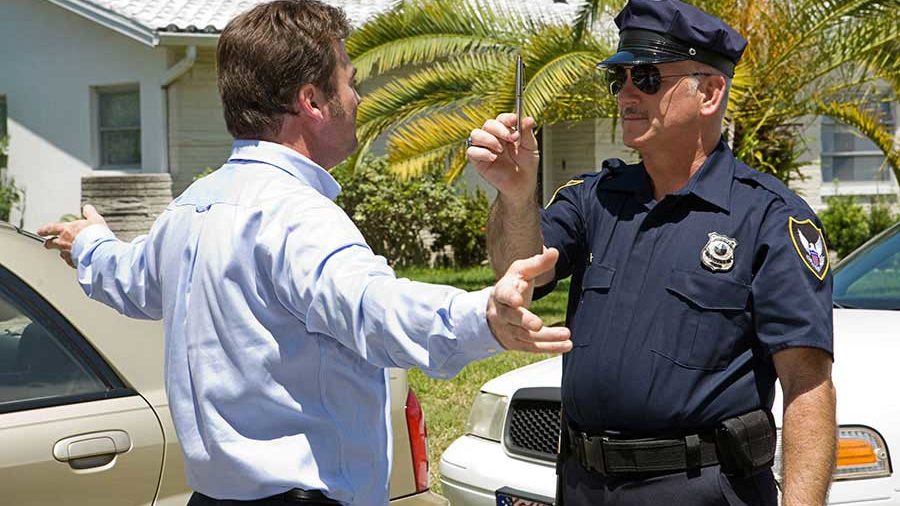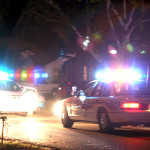Michigan’s Super Drunk Driving Law Prohibits Driving with a High BAC
Operating While Intoxicated with High BAC is a serious charge with harsh consequences. It takes a highly experienced and skilled lawyer to get charges reduced and help the client avoid jail.

Michigan’s OWI with a High BAC charge is commonly called the “Super Drunk” law.
“Super Drunk” is a slang term that does not accurately reflect Michigan OWI or super drunk driving law. Michigan has many different drug and alcohol-related driving laws, and one of the most serious is OWI with a breath or blood alcohol content of 0.17 or more, also known as OWI with High BAC.
This offense is more severe than an ordinary first-offense OWI because the potential penalty and license sanctions are more significant. For example, an OWI First Offense has a maximum jail sentence of up to 93 days, and a High BAC case has a maximum possible sentence of up to 180 days. Other potential penalties include the following:
- Up to a $700 fine
- Up to 360 hours of community service
- Up to one-year license suspension
- 6 points on a driver’s license
- Mandatory completion of an alcohol treatment program
- After 45 days of license suspension, an ignition Interlock device is required to receive a restricted driver’s license. Convicted drunk drivers have limited driving privileges, are prohibited from operating a vehicle without an approved, properly installed ignition interlock device, and are responsible for all installation and upkeep costs.
- Loss of a Concealed Pistol Permit for three (3) years
Refusal of a Chemical Test on Super Drunk Driving Charges
Anyone who refuses a chemical breath test the first time is given an automatic one-year, implied consent driver’s license suspension. For a second refusal within seven years, the suspension is two years. A chemical breath test (breathalyzer) differs from a preliminary breath test. Refusal of a preliminary breath test is a civil infraction punishable by a nominal fine. If someone’s license is suspended due to an implied consent refusal, they can request a hearing at the Driver’s Appeal and Assessment Division (DAAD) and/or a hardship license from a Circuit Court.

Defenses to Charges Under Michigan’s Super Drunk Driving Law
Even though many OWI Defense Attorneys in Michigan routinely advise clients to accept plea bargains without putting up a vigorous defense, the most experienced criminal defense lawyers know many viable and effective defenses to these cases. Possible defenses include:
- Rising Blood Alcohol Content
- Necessity
- Duress
- Entrapment
- 4th Amendment Violation – Illegal Search and Seizure
- 4th Amendment Violation – Illegal Stop
- Involuntary Intoxication
- Inaccurate Chemical Test
- Flawed Investigation or Field Sobriety Tests
- Mistaken Identity of the Driver
- No Probable Cause for Arrest
- Medical Condition Causing Impairment
- Lawful Medications within Therapeutic Limits
- Testing During the Absorption Phase
- No “Operation” or Driving Observed
- Driving was Not in a Public Place
- Destruction of Evidence
- Improper Preservation of Evidence
How Can an OWI Defense Lawyer Help with Charges Under the Super Drunk Driving Law?
An experienced lawyer handling OWI cases, including High BAC charges, can help you in many ways, even if there is overwhelming evidence of guilt. There are two types of OWI cases: one that should go to trial and the other that should result in a favorable plea bargain. Deciding if a case should go to trial or result in a plea is highly complex, and it takes decades of experience to become proficient at making this determination. As you can see from the extensive list of possible defenses, only a qualified and experienced criminal defense attorney has the expertise to thoroughly review the evidence and advise a client on the best way to proceed. A lawyer’s job does not stop with drafting motions and reviewing evidence.
Great OWI defense attorneys will clearly explain the court process to clients to reduce and manage anxiety and fear. Clients should be able to rely on their lawyers to provide advice and counsel regarding what measures can be taken out of court and even before a prosecution to put them in the best possible light with the court. Finally, effective representation requires a lawyer with a solid and credible reputation to convince a prosecutor to lower charges and a judge to order a fair sentence. If a pretrial resolution is impossible, you’ll need a lawyer with the savvy and skill to win a jury trial.

What does probation mean for OWI High BAC cases?
Probation under Michigan’s super drunk driving law means supervision by the court for a period of time. Up to two (2) years of probation can be reporting or nonreporting. Reporting probation will require a convicted defendant to contact a probation officer in person, by mail, by email, or by phone periodically (usually once per month or more). Other standard terms and conditions of probation include:
- Fines, costs, supervision fees, state fees, and restitution (often between $1,000 and $3,000),
- Alcohol and drug testing,
- Alcohol Education and Therapy,
- Driving restrictions,
- Possible forfeiture of a vehicle,
- Community service,
- Work programs,
- House arrest,
- Tether (alcohol and/or GPS),
- Restrictions on transporting minors,
- Employment requirements, and more.
License Sanctions from the Secretary of State
All high-BAC offenders under the super drunk driving law face suspension of driving privileges for one year, with the first 45 days being a “hard” suspension—no driving allowed. For the remaining 320 days, the offender may be allowed restricted privileges if they have a breath alcohol ignition interlock device (BAIID) installed in the car they drive during this period. There is a monthly maintenance cost for the BAIID and the installation cost, and the convicted driver is responsible for that cost. In Michigan, the cost of maintaining a BAIID can vary but run as high as several hundred dollars monthly. Some cost adjustments may be made if the driver meets specific low-income requirements.

Experienced OWI High BAC Defense Attorneys
The Defense Team with LEWIS & DICKSTEIN, P.L.L.C. has a well-earned reputation for providing the highest caliber defense on OWI cases in Southeastern Michigan. We charge fair and affordable legal fees and have decades of experience and an unparalleled track record of success in the courtroom on all alcohol and drug-related driving charges, including super drunk driving offenses. Most lawyers offer big promises that generally result in quick pleas and mediocre sentences. Our defense attorneys will do whatever is necessary to obtain the best possible result. Don’t trust your fate to the lowest bidder; the outcome of these cases is too important to be left to chance.
Call us today at (248) 263-6800 for a free consultation or complete an online Request for Assistance Form. We will contact you promptly and find a way to help you.
We will find a way to help you.
We Are Not Afraid to Win!
History of the Super Drunk Driving Law
The Super Drunk Driving Law, also known as the High Blood Alcohol Content (BAC) Law, was enacted in Michigan in 2010. The law was created to address the issue of drunk driving, particularly among those with a high blood alcohol concentration.
Under the Super Drunk Driving Law, drivers with a blood alcohol concentration of 0.17 or higher can be charged with a more severe offense than a standard DUI. This offense carries higher fines, longer jail sentences, and a more extended license suspension period.
The law was enacted after years of advocacy by organizations such as Mothers Against Drunk Driving (MADD) and other groups seeking to reduce the fatalities caused by drunk driving. Before the law’s enactment, Michigan had one of the country’s highest drunk driving incidents.
Since the law’s enactment, there has been a reduction in the number of drunk driving incidents in Michigan. However, drunk driving remains a severe problem in the state and country, and efforts to reduce its occurrence continue.












